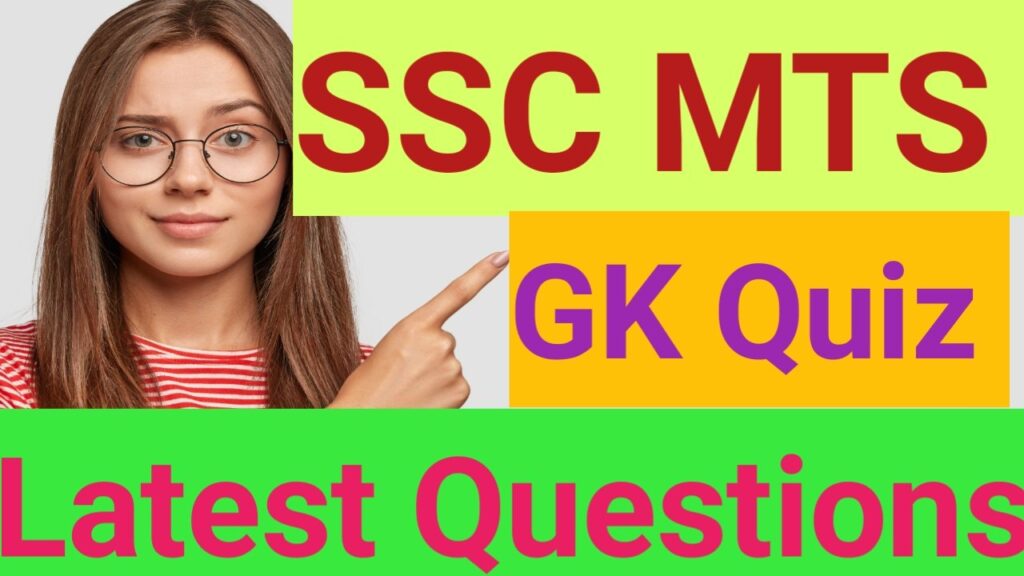
Introduction :
Welcome to studyshared.com Preparing for competitive examinations in 2025 requires a strong command over General English, as it plays a vital role in almost every exam syllabus. From grammar and vocabulary to comprehension and sentence improvement, English is one of the most scoring sections if approached with the right strategy. Whether you are aiming for SSC, Banking, Railway, Defence, State PSC, UPSC, or any other government job exam, practicing Multiple Choice Questions (MCQs) on General English is the best way to sharpen your skills and boost confidence. General English mcq Question wbcs 2025
In this blog, we have compiled a wide range of General English MCQs with answers and explanations to help aspirants practice effectively. These questions are carefully selected to match the latest exam trends and difficulty level of Competitive Examinations 2025. Regular practice of these MCQs will not only enhance your accuracy but also save valuable time during the exam.
Q1. Choose the synonym of the word: “Abundant”.
- (A) Scarce
- (B) Plenty
- (C) Rare
- (D) Empty
Correct Answer (B)
- Here are several synonyms of the word “abundant” along with example sentences for each:
- Plentiful: The orchard was filled with plentiful apples ready for picking.
- Copious: The scientist took copious notes during the experiment to ensure accuracy.
- Ample: We have ample time to finish the project before the deadline.
- Profuse: Her gratitude for their help was profuse and she couldn’t thank them enough.
- Bountiful: The bountiful harvest of vegetables ensured that no one in the community would go hungry.
- Lavish: The wedding was a lavish affair, with extravagant decorations and a gourmet feast.
- Overflowing: The river was overflowing after days of heavy rain, causing flooding in the low-lying areas.
- Prolific: The author was prolific, publishing multiple books each year.
Q2. Choose the antonym of the word: “Benevolent”.
- (A) Kind
- (B) Generous
- (C) Malevolent
- (D) Helpful
- Correct Answer (C)
- Here are several antonyms of the word “benevolent” with example sentences:
- Malevolent: The malevolent glare from the antagonist made everyone in the room uneasy.
- Malicious: He spread malicious rumors to harm his competitor’s reputation.
- Hostile: The hostile remarks during the debate created a tense atmosphere.
- Cruel: The cruel treatment of animals is condemned by society.
- Unkind: It was unkind of her to ignore his request for help.
- Ruthless: The ruthless leader showed no mercy to his opponents.
- Merciless: The merciless winter storm caused widespread damage.
- Cold-hearted: The cold-hearted decision left many employees without jobs.
- Selfish: His selfish actions hurt those who trusted him.
- Callous: The callous response to the disaster angered the victims. Each of these words represents a harmful or unkind attitude, opposing
Q3. Choose the synonym of the word: “Impeccable”.
- (A) Perfect
- (B) Faulty
- (C) Ordinary
- (D) Weak
Correct Answer (A)
- Here are some synonyms of the word “impeccable” with simple examples:
- Perfect: She has perfect handwriting.
- Flawless: His performance was flawless.
- Faultless: The artist’s work was faultless.
- Immaculate: He keeps his house in immaculate condition.
- Spotless: The kitchen was spotless after cleaning.
- Exemplary: Her behavior at the event was exemplary.
- Unblemished: The diamond was unblemished and shiny.
- Outstanding: She did an outstanding job on the project.
- Pristine: The beach was pristine and untouched.
- Supreme: He showed supreme skill in the competition.
- These words all convey the sense of something being without fault or error, just like “impeccable”.
Q4. Choose the antonym of the word: “Dormant”.
- (A) Active
- (B) Sleeping
- (C) Quiet
- (D) Hidden
The Correct Answer (A)
- Here are several antonyms of the word “Dormant” with perfect example and sentences:
- Active – She likes to stay active.
- Awake – He was wide awake during the lecture.
- Alert – The guard remained alert throughout the night.
- Operative – The plan is now operative.
- Functional – The machine is fully functional.
- Lively – The party was lively and fun.
- Energetic – The child was energetic all day.
- Working – The factory is working at full capacity.
- Busy – The streets are busy during rush hour.
- Alive – The volcano is still alive and erupting.

Q5. Choose the synonym of the word: “Transient”.
- (A) Permanent
- (B) Temporary
- (C) Lasting
- (D) Stable
The Correct Answer (B)
- Here are several synonyms of the word “transient” with simple examples:
- Temporary: She took a temporary job for the summer.
- Brief: We had a brief meeting yesterday.
- Fleeting: Happiness can be fleeting sometimes.
- Ephemeral: The beauty of a rainbow is ephemeral.
- Momentary: He had a momentary lapse of memory.
- Transitory: Their stay in the city was transitory.
- Short-lived: The excitement was short-lived.
- Passing: A passing storm interrupted the picnic.
- Impermanent: The marks on the wall are impermanent.
- Evanescent: The evanescent glow of the fireflies lit the night.
Q6. Choose the correct meaning of the idiom: “To cry over spilt milk”.
- (A) To regret over past events
- (B) To waste money
- (C) To celebrate success
- (D) To quarrel unnecessarily
The Correct Answer (A)
- The correct meaning of the idiom “To cry over spilt milk” is to be upset or complain about something that has already happened and cannot be changed.
- Simple example:
- It’s no use crying over spilt milk; the vase is broken, so let’s clean it up and move on. This idiom advises not to waste time feeling sad about past mistakes or losses because they cannot be undone.
Q7. Choose the idiom meaning: “Break the ice”.
- (A) To start a conversation in a friendly way
- (B) To create problems
- (C) To spoil a relationship
- (D) To go on an adventure
The Correct Answer (A)
The correct meaning of the idiom “Break the ice” is to do or say something that makes people feel more relaxed and comfortable, especially when they meet for the first time or in a new situation.
Simple example : She told a funny story to break the ice at the party, so everyone started chatting happily. This idiom is often used to describe the act of starting a conversation or easing tension in social settings.
Q8. The idiom “A blessing in disguise” means ?
- (A) A problem that cannot be solved
- (B) Something that appears bad but turns good
- (C) A curse
- (D) A difficult situation
The Correct Answer (B)
The correct meaning of the idiom “A blessing in disguise” is something that seems bad or unlucky at first but actually turns out to be good or benefits.
Simple example : Losing that job was a blessing in disguise because it pushed me to start my own successful business. This idiom highlights how an apparent misfortune can have unexpected positive results.
Q9. “To keep someone at arm’s length” means ?
- (A) To measure length
- (B) To be very friendly
- (C) To fight someone
- (D) To maintain distance or avoid closeness
The Correct Answer (D)
The correct meaning of the idiom “To keep someone at arm’s length” is to avoid being very close or friendly with someone; in other words, to maintain some distance from a person emotionally or physically.
Simple example: Mrs. Mousumi Das decided to keep her new colleague at arm’s length until she got to know them better. This idiom is used when someone does not want to form a close relationship or get too involved with another person.
Q10. “To beat around the bush” means ?
- (A) To plant trees
- (B) To speak directly
- (C) To avoid the main point
- (D) To hunt animals
The Correct Answer (C)
The correct meaning of the idiom “To beat around the bush“ is to avoid talking about something directly or to speak in a roundabout way instead of getting to the main point.
Simple example : Stop beating around the bush and tell me what really happened. This idiom is used when someone is hesitant or unwilling to speak plainly about the important issue.
Sentence Improvement (11- 15)

Q11. “He does not knows the answer.”
- (A) He does not knew
- (B) He do not knows
- (C) He does not know
- (D) No improvement
The Correct Answer (C)
He does not know the answer.
Explanation: In negative sentences with “does not” (or “doesn’t”), the main verb should be in its base form without “s” at the end. So, “does not knows” is incorrect; the correct form is “does not know”.
Simple example: (1) She does not like spicy food. (2) He does not know the answer.
Q12. “The train is late from two hours.” ?
- (A) The train is late by two hours
- (B) The train is late at two hours
- (C) The train was late from two hours
- (D) The train has been late for two hours.
The Correct Answer (D)
Simple example: The train has been late for two hours, so the passengers are waiting patiently.
This version properly uses the present perfect tense “has been late” and the phrase “for two hours” to indicate the duration of the delay.
Q13. “One of my friend is going abroad.” ?
- (A) One of my friends is going abroad
- (B) One of my friend are going abroad
- (C) One of my friends are going abroad
- (D) No improvement
The Correct Answer (A)
Simple example : (1) One of my friends is going abroad next month to study medicine. This correction uses “friends” (plural) because “one of” refers to a single person from a group, and the verb “is” agrees with the singular subject “one”. The improved sentence is : One of my friends is going abroad.
Simple example : (2) One of my friends is going abroad next month to study medicine. This construction is correct because “one of” is followed by a plural noun (friends), but the verb agrees with the singular subject “one”.
Q14. “He is senior than me in service.” ?
- (A) He is senior from me
- (B) He is senior as me
- (C) He is senior to me
- (D) No improvement
The Correct Answer (C)
Simple example: He is senior to me in service by five years. The correction uses “senior to” instead of “senior than,” as “senior” is correctly followed by the preposition “to” in comparisons of rank or position.
Q15. “The teacher asked me that why was I late.” ?
- (A) why am I late
- (B) why was I late
- (C) why I was late
- (D) No improvement
The Correct Answer (C)
Simple example: The teacher asked me why I was late to class this morning.
In indirect questions, the word order changes to statement form (subject + verb) rather than question form (verb + subject). Also, “that” is not needed in this structure.
One Word Substitution (16 – 20)

Q16. A person who hates mankind: ?
- (A) Philanthropist
- (B) Cynic
- (C) Misogynist
- (D) Misanthrope
The Correct Answer (D)
A person who hates or dislikes mankind.
Simple example: He is a misanthrope who prefers to live alone and avoid people. This term comes from Greek, where “Misos” means hatred and “Anthropos” means human.
Q17. A person who talks in sleep: ?
- (A) Insomniac
- (B) Somniloquist
- (C) Somnambulist
- (D) Narrator
The Correct Answer (B)
Simple definition: A somniloquist is someone who speaks or makes sounds while asleep without knowing it. The “somniloquist” is a term used to describe a person who talks in their sleep.
Example: My father is a somniloquist; he talks in his sleep almost every night.
Q18. A speech delivered without preparation: ?
- (A) Memorized
- (B) Extempore
- (C) Rehearsed
- (D) Dramatic
The Correct Answer (B)
Simple definition: Extempore is the act of speaking or giving a speech instantly, without prior planning or notes. Extempore means speaking or performing without any preparation or rehearsal.
Example: He gave an extempore speech on the importance of education during the school assembly. Extempore speeches require quick thinking and clear expression on the spot.
Q19. A person who pretends to be what he is not: ?
- (A) Hypocrite
- (B) Egoist
- (C) Optimist
- (D) Introvert
The Correct Answer (B)
A hypocrite is a person who pretends to have moral beliefs, virtues, or feelings that they do not actually possess, especially when their actions contradict what they say.
Simple definition: A hypocrite is someone who says one thing but does the opposite.
Examples: He always tells others to be honest, but he lies himself. He is a hypocrite. She criticizes people for being lazy, but she never works hard. What a hypocrite! Hypocrites often act differently in public than they do in private, pretending to be better or more virtuous than they really are.
Q20. A person who is fond of working at night: ?
- (A) Diurnal
- (B) Nocturnal
- (C) Temporal
- (D) Vigilant
The Correct Answer (B)
Simple definition: Nocturnal describes animals, people, or things that are awake and active at night. Nocturnal means active or happening during the night rather than during the day.
Examples: Owls are nocturnal birds because they hunt for food at night. Many nocturnal animals sleep during the day and come out only after sunset. The opposite of nocturnal is diurnal, which means active during the day.




Pingback: Indian Geography mcq for wbp exam 2025
Pingback: Latest English mcq Question 2025